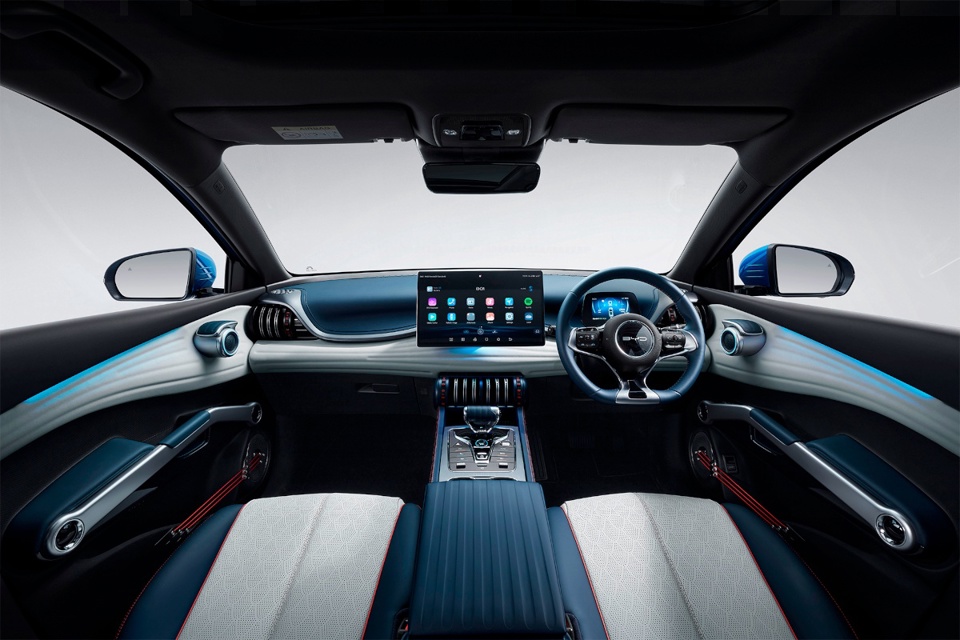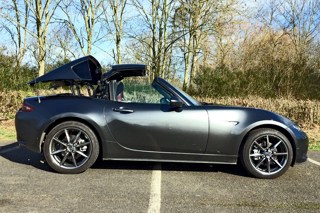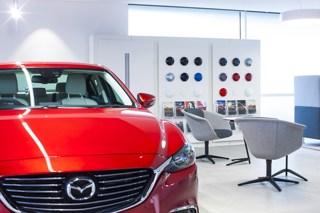Trade tariffs imposed by Europe will need to be harsh in order to arrest the future dominance of Chinese electric vehicles (EV) in its home market, according to one industry expert.
Speaking at the China-Britain Business Council roundtable event at the Institute of Motor Industries on 14 September, Owen Edwards, head of downstream automotive consulting at Grant Thornton, said the margins Chinese manufacturers are set to achieve in the near future - driven by the plummeting cost of vertically produced EVs – will put European lawmakers under even more pressure.
The European Commission earlier this month said it was planning to investigate whether to impose punitive tariffs to protect European Union vehicle producers against cheaper Chinese EV imports, claiming their price is being kept artificially low by huge state subsidies.
Trade tariffs imposed by Europe will need to be harsh in order to arrest the future dominance of Chinese electric vehicles (EV) in its home market, according to one industry expert.
Speaking at the China-Britain Business Council roundtable event at the Institute of Motor Industries on 14 September, Owen Edwards, head of downstream automotive consulting at Grant Thornton, said the margins Chinese manufacturers are set to achieve in the near future - driven by the plummeting cost of vertically produced EVs – will put European lawmakers under even more pressure.
The European Commission earlier this month said it was planning to investigate whether to impose punitive tariffs to protect European Union vehicle producers against cheaper Chinese EV imports, claiming their price is being kept artificially low by huge state subsidies.
The Commission will have up to 13 months during its anti-subsidy investigation to assess whether to impose tariffs above the standard 10% EU rate for cars.
As Brussels starts hunting for evidence of unfair support, Edwards said it is rather the ‘seismic downward shift’ of costs driven by advanced battery technology together with innovative production techniques and the vertical industrial structure of Chinese carmakers which is now the most significant factor at play.
He cited next-generation lithium iron phosphate (LFP) battery technology which Chinese car manufacturer BYD will be introducing to make batteries approximately 20% cheaper. US rival Tesla is also planning to produce an equivalent – both of which will boost likely range to between 500-600 miles by the end of 2027. “That will also have a major impact on the residual value of the vehicle,” said Edwards.
“The Chinese are coming and there's a lot to consider,” he said adding that demand for electric vehicles in Europe is being driven by climate legislation aimed at halving greenhouse gas emissions by 2030 which will ban the manufacture of tailpipe emitting vehicles.
“That's going to be pretty tough. We know that all European manufacturers are already complaining about it and are discussing e-fuels and hydrogen and all sorts of other things. Chinese firms meanwhile have ploughed US$24 billion into the European Union including the Envision factory in Sunderland with Nissan.”
“The Chinese are also looking for manufacturing here as well so even though tariffs might change, there will still be opportunities,” he said, adding that BYD is known to be in discussion with Ford about using redundant manufacturing capacity in Europe.
Citing UBS research into both BYD and Tesla manufacturing costs versus legacy competitors which revealed lower costs of 25% and 16% respectively, Edwards said: “So if we're at a 10% tariff at the moment, BYD still has 15 per cent with which to play, Tesla 6%,” he said, adding that current UK and EU import tariffs are low at 10% compared to US tariffs of 27.5%.
“The Chinese are coming, but certainly Elon Musk’s Tesla is coming fast as well. The big question marks will be in how that affects brands that manufacture in the old fashioned way. "Fundamentally, is that wave coming? Yes. Is it coming in the way of price? Yes. Can we do something about putting tariffs on. We can, but what will be the reaction? We don't know.”
“Where it really starts to get very interesting is that if we're talking about China's support for Chinese carmakers, do we really think the French government is going to let its industry go? Do we really think the German government is going to let BMW, Audi and VW go?
“Fundamentally, it's good to get in with China. The UK new car market alone represents a maximum 2.6 million vehicles with the whole of the European market accounting up to 16 million units a year. It's good business to build with Chinese carmakers but a lot is going to change over the next five years with a lot of volatility.”
Login to continue reading
Or register with AM-online to keep up to date with the latest UK automotive retail industry news and insight.


















Login to comment
Comments
No comments have been made yet.